FACULTY

Thomas ERTL is Professor at the Institute of Sanitary Engineering and Water Pollution Control.
The main focus of his research has been the optimisation of management of urban drainage systems. He is an expert in innovative inspection technology and worked together with UK and NL asset management experts within the IAHR-IWA Specialist Group on Sewer Processes and Networks. In numerical modelling of urban water infrastructure he worked with Univ. of Graz and Innsbruck. Within a national consortium he developed a method for the integration of wastewater treatment plants into regional energy concepts. Actual research is about green infrastructure for stormwater retention and pollution control.
Further information
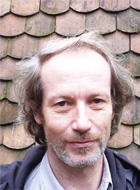
Wolfram GRAF is Associate Professor at the Department of Ecosystem Management, Climate and Biodiversity. The main focus of research and education is the ecology and taxonomy of benthic macroinvertebrates throughout Europe, the Himalayan Region, and parts of Africa. Issues of biodiversity in waters of different types (mainly rivers and streams and floodplain-systems), effects of anthropogenic activities (channelization, waterpulses, retention caused by hydro power, pollution, climate change, non-indigenous species etc.) and interactions of trophic levels are focus areas of research. Fundamental and applied studies are essential parts for development, testing and standardization of methods for assessing the water quality and ecological status of rivers and streams in Europe, Asia and Africa.
Further information
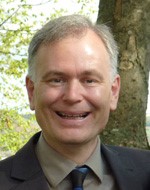
Helmut HABERSACK holds a UNESCO Chair on “Integrated River Research and Management”, coordinating the “World´s Large Rivers Initiative”, and is a Full Professor of Hydraulic Engineering and Modelling at the Department of Landscape, Water and Infrastructure. He is Head of the Inst. of Water Management, Hydrology and Hydraulic Engineering, and of the CD Laboratory for Advanced Methods in River Monitoring, Modelling and Engineering. Helmut Habersack has over 25 years of experience in river engineering, flood risk management, hydropower, navigation, sediment transport and river restoration. He is author of over 80 journal publications, 10 monographs and over 100 proceedings and organized the Conferences „On the Status and Future of the Worlds´s Large Rivers“ (held in Vienna, Manaus, New Delhi). He won the “Science2Business 2015” Award.
Further information
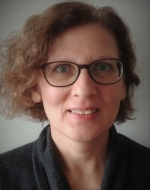
Gertrud HAIDVOGL is senior scientist at the Department of Ecosystem Management, Climate and Biodiversity and specialized in environmental history and historical ecology of rivers. Her research deals with long-term change of fish populations and communities and the drivers of this change, the development of rivers as a societal resource (esp. overall trends, fisheries, energy, transport) and the ecological conditions of riverine landscapes as a consequence of past socio-ecological interactions. In recent years, a focus was on the Danube. In particular, the co-evolution of Vienna and the Danube was investigated in two research projects together with the Institute of Social Ecology.
Further information

Christoph HAUER is senior scientist at the Institute of Water Management, Hydrology and Hydraulic Engineering. The main focus of his research has been on an improved process understanding between the abiotic (physical environment) and the biotic responses of river systems on different scales. He is an expert in the field of ecohydraulics and applied river morphology. He was coordinating several national and international projects dealing with hydropower management. Currently he is head of the Christian Doppler Laboratory “Sediment research and management".
Further information
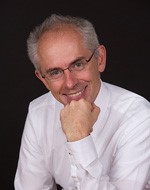
Thomas HEIN is Professor at the Department of Landscape, Water and Infrastructure, Inst. of Hydrobiology and Aquatic Ecosystem Management as well as affiliated to WasserCluster Lunz. His research topics cover nutrient and carbon cycling and biodiversity aspects of primary producers and invertebrates within riverine landscapes and along critical interfaces such as aquatic-terrestrial boundaries as well as interdisciplinary ecohydrological approaches based on a combined high resolution observational, experimental and integrated modelling approach. A better understanding how societal processes shape ecosystem functioning and services and could limit ecosystem management is a central question of our research.
Further information

Rebecca HOOD-NOWOTNY is a specialist in the application of isotope techniques in the field of agriculture, forestry and entomology. She has gained a wealth of experience in agricultural development and soils research having worked for and collaborated with the Food and Agriculture Organization (FAO/IAEA) for many years. Her main focus is on measuring carbon and nutrient cycling; using stable isotope techniques and the consequences of climate change in natural and cropping systems. Her interest in river systems comes from a soils perspective with particular interest in erosion and how this effects carbon and nitrogen cycles in river systems. She has an extensive international research network and scientific collaborations throughout Europe, the Galapagos and in the US; particularly in the field of tracing insect diets and movements. She leads a number of citizen science/science communication projects on soil carbon sequestration.
Further information

Gregor LAAHA is Associated Professor of Environmental Statistics at the Department of Natural Sciences and Sustainable Resources. He teaches undergraduate and graduate courses in the field of general statistics and environmental statistics. His fields of expertise include environmental indices, statistics of extreme events and geostatistics, spatial and temporal modelling, multivariate methods, and classification techniques. His main area of expertise within HR21 topics comprises statistical modelling of hydro-meteorological extremes, with a specific focus on hydrological drought. A better understanding of environmental and human processes giving rise to past, present and future droughts are a key question of his research.
Further information

Günter LANGERGRABER is senior scientist at the Institute of Sanitary Engineering and Water Pollution Control. His research focus is on nature-based solutions (NBS) and resources-oriented sanitation systems, both as stand-alone research topics as well as in combination. To cope with global challenges, NBS are researched to create circular economy in urban settings. Interdisciplinary settings are required for implementation of these solutions. Currently he is Chair of the COST Action Circular City and leader of the Working Group on SDG 6 (Clean Water and Sanitation) in the UniNEtZ, a project in which 15 Austrian universities work together on developing options for achieving SDGs in Austria.
Further information
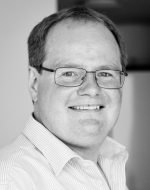
Erwin SCHMID is Professor for Sustainable Land use and Global Change at the Department of Economics and Social Sciences. He teaches undergraduate and graduate courses in the field of agricultural, environmental and resource economics. His research interests include: development of Integrated Modelling Frameworks (IMFs) to analyse the climate-land-water-energy nexus in context of global change; integrated modelling of land use change and water dynamics and impairment; integrated assessment of land and water ecosystem services' trade-offs and synergies; uncertainty assessment and propagation in IMFs; efficient policy design in land, water, energy resource and environmental management.
Further information
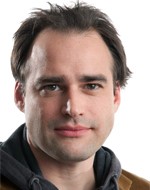
Martin SCHMID is Associate Professor at the Institute of Social Ecology (SEC). He is historian by training, and his research focuses on the environmental history of the Danube River and basin. Environmental historians study the mutual relationship between people and the rest of nature over time. It provides references from the past to understand and analyse the rationale, intensity and velocity of the ongoing industrialization of riverine landscapes. At SEC, Martin has contributed to developing long-term socio-ecological research (LTSER), an approach to integrate ecological with socio-economic and cultural research systematically.
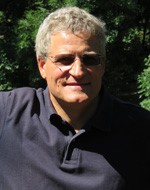
Stefan SCHMUTZ is Professor at the Department of Ecosystem Management, Climate and Biodiversity, Institute of Hydrobiology and Aquatic Ecosystem Management with a research focus on aquatic ecology, fish ecology, human impact assessment, fish habitat and fish migration, climate and global change, river restoration and sustainable hydropower. He is interested in understanding the functioning of riverine ecosystems and how functions and processes are impacted by human activities. Furthermore, he investigates restoration and mitigation options in close cooperation with stakeholders in order to develop sustainable management strategies for running waters.
Further information

Karsten SCHULZ is Professor for Hydrology and Integrated Water Management at the Department of Landscape, Water and Infrastructure. His research expertise is in the scale-dependent monitoring and modelling of water, energy and solute fluxes in the subsurface and in the soil-plant-atmosphere system. The development and application of methods to derive hydrometeorological as well as soil and land surface parameters using a wide range of remote sensing techniques are important components of his research activities. The development and application of uncertainty estimation and data assimilation techniques are an other major focus.
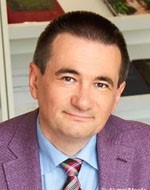
Gernot STÖGLEHNER is Full Professor for spatial planning at BOKU, Head of the Institute of Spatial Planning, Environmental Planning and Land Rarrangement (IRUB), and coordinator of the BOKU Energy Cluster. His fields of expertise include sustainable spatial planning and development, integrated spatial and energy planning, resilience in spatial planning, climate change adaptation and mitigation with means of spatial planning, environmental assessments, strategic spatial planning, development of planning methods and planning tools, participatory planning and action research, planning theory and quality of planning, as well as shaping the 3rd mission of universities including further education.
Further information

Christine STUMPP is Professor of Rural Water Management and Soil Physics at the Institute of Hydraulics and Rural Water Management. Her research focuses on the understanding of climate and land use impact on water and matter fluxes in soils and groundwater with the goal to improve the sustainability of water use and manage water resources to maintain ecosystem functioning. She has a main expertise in using tracer methods, particularly water stable isotopes, to identify sources of water and to quantify fluxes and transport processes. She develops and uses experimental and modeling approaches for understanding coupled interactions between hydrological, biogeochemical and ecological processes.
Further information

Gabriele WEIGELHOFER is Senior Scientist at the Department of Ecosystem Management, Climate and Biodiversity, Institute of Hydrobiology and Aquatic Ecosystem Management. Her research focuses on nutrients and carbon cycling in streams and rivers; the effects of land use, hydrology, and temperature on benthic autotrophic and heterotrophic biogeochemical processes; and the restoration and management of riverine systems.
Associated Faculty Members
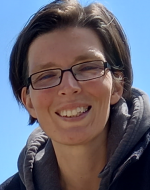
Elisabeth BONDAR-KUNZE is a Senior Scientist at the Institute of Hydrobiology and Aquatic Ecosystem Management. She completed her undergraduate studies at the University of Vienna and her Ph.D at the University of Natural Resources and Life Sciences. Her research interests lie in the area of multiple stressors in riverine landscapes, focusing on mechanisms behind these multiple stressor effects. Elisabeth is also particularly interested in periphyton ecology and their physiology, using non-invasive methods such as pulse-amplitude-modulation fluorometry. Recently her work is additionally focused on ecosystem services and their consequences for water quality in floodplain areas along the Danube River.
Further information
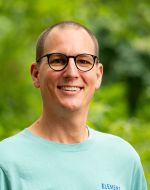
Florian Borgwardt (née Pletterbauer) is Assistant Professor at the Institute of Hydrobiology and Aquatic Ecosystem Management. He leads the working group on Spatio-Temporal Riverscape Research (STaRR) and his research focuses on river ecology, impacts of human pressures on riverine ecosystems, conservation and restoration planning, climate change impacts and the multifunctionality of riverscapes, with particular attention to EU environmental legislation and its practical implementation. During the last 15+ years he gained rich experience in national and international research projects and established a strong national and international network of collaborators. Currently he coordinates the Horizon Europe Danube Lighthouse project DANUBElifelines.
Further information
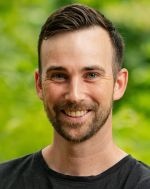
Daniel S. HAYES is a Senior Scientist at the Institute of Hydrobiology and Aquatic Ecosystem Management. His research focuses on river ecohydrology and ecohydraulics, multiple stressors, biodiversity, and ecosystem restoration. With 10+ years’ experience in freshwater science and a venia docendi in Freshwater Ecology, he combines laboratory experiments, field surveys, large-scale assessments, and stakeholder engagement. He contributes to ECoENet and HyPeak, two international research networks, and co-coordinates the DANUBIUS research supersite “Upper Danube Austria.”
Further information
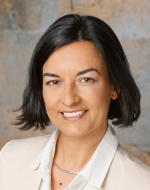
Bano MEHDI-SCHULZ is a Senior Scientist at the Department of Landscape, Water and Infrastructure. Her research focuses on catchment hydrology and modelling N, P and sediment transport from cropland into surface water bodies. She applies social ecological systems (SES) as a framework to examine how anthropogenic change, such as agricultural land use change and climate change, impact surface water quality. She examines the drivers of farmer decision-making and their influence on water quality for meeting policy targets, i.e. the WFD. She determines field management practices that can be potential adaptation strategies for farmers and achieve a reduction in the nutrient loads in rivers and lakes.
Further information
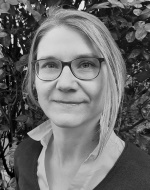
Hermine MITTER is Senior Scientist at the Institute for Sustainable Economic Development. Her main areas of research are: qualitative and quantitative surveys to explore actors’ perceptions and analyse decision making processes in land use and water management in the context of climate and socio-economic change; protocol-based, participatory scenario development to describe, explore and communicate how the future may unfold; integrated assessments for efficient policy design in land use and water management.

Rafaela SCHINEGGER is an Associate Professor for “Integrative Nature Conservation Planning” at BOKU, Vienna. Her focus is the integration of aquatic and terrestrial issues for strategic nature conservation planning, i.e., the development of solutions to preserve ecosystem integrity and biodiversity by also enabling various human uses. She has more than 15 years of experience in freshwater ecology, ecosystem modelling, management of multiple human pressures & River Basin Management and land-water interactions. Another focus is the implementation and intersection of EU directives as well as working with stakeholders from various sectors and contributions to the Science-Policy-Interface.
Further information
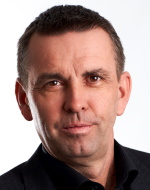
Walter SEHER is Assistant Professor at the Institute of Spatial Planning, Environmental Planning and Land Rearrangement (IRUB). He holds a master degree in Civil Engineering and Water Management (1994) and a PhD from BOKU University (1998). His key qualifications include spatial planning in natural hazard risk management and climate change adaptation, land policy and land rearrangement. Dr. Seher is experienced in leading and participating in more than 30 national and international research projects and has published peer-reviewed articles and book-chapters on spatial planning and flood risk management, land policy and land consolidation. He is General Secretary of the European Academy of Land Use and Development.
Further information
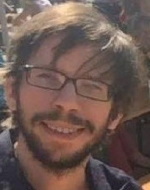
Michael STOCKINGER is University Assistant at the Institute for Soil Physics and Rural Water Management (SoPhy). He focuses on investigating the rainfall-runoff process in small to large catchments by looking at the catchment-wide flow of water (transit time distribution, TTD). Using isotope hydrology, he investigates relationships of the TTD with catchment characteristics and hydrometeorological variables. Additionally, he develops and improves novel methods of measuring the stable isotopes of water in plant and soil samples using laser spectroscopy, as well as develops novel collection systems for throughfall.
